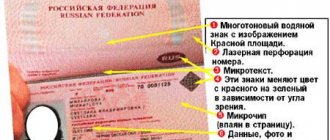Can I take a child from the orphanage “for a while”?
You can take a child from an orphanage “for the holidays” if you are already 18 years old and a citizen of the Russian Federation. However, you should not have:
- deprivation or restriction of parental rights;
- an unsuccessful story with adoption or guardianship, when your responsibilities were removed due to your fault;
- criminal record (there are a number of exceptions to this point);
- infectious diseases in open form and addictions (alcohol, drugs).
You also must not be declared legally incompetent.
Where and how long can I be with my child?
Children from an orphanage can stay with you for a maximum of 3 months, in exceptional cases - up to 6 months. Your vacation with your child can take place in a camp or sanatorium in Russia, at your dacha, or just at your home. You cannot leave the borders of the Russian Federation with a child.
You can also simply come to the organization and pick up your child to spend time together. In this case, the child can return to the orphanage to sleep.
It is important to know about children from an orphanage that you do not have the right to leave them with someone else. The only exception would be an emergency situation when a child requires medical attention.
Which child can I take?
You can take any child “on vacation” in accordance with the rules of the orphanage. In addition, the child must agree. His consent is obtained in writing (if he already knows how to write) or orally (in a neutral conversation with a psychologist or teacher, when no one can influence the child’s opinion).
If a child has siblings, then the children can only be taken all together, except in cases where the brothers and sisters cannot be removed from the organization for health reasons or simply because they themselves refused.
Aunt Masha has a studio-workshop
The owner of this art studio is Maria Timofeeva. A jack of all trades and a good-natured teacher for children, Maria makes ceramic products with them, teaches pottery, wool felting, and wax casting.
There is also the opportunity to organize a family holiday or a children's performance. In addition to the studio, there is a games room where visitors relax or play. Maria conducts developmental and educational classes and accepts children from three years old.
- Official website: At Aunt Masha's
- Telephone:
- Moscow city
- Address: Ostrovityanova, 53
How to collect the necessary documents?
If you do not have a valid conclusion on the possibility of being an adoptive parent or guardian (the validity period of such a conclusion is 2 years), then you need to obtain a conclusion on the possibility of temporarily placing the child in a family. To do this, you need to submit the following documents to the guardianship and trusteeship authorities at your place of residence or temporary registration:
- application (filled out in person during the appointment);
- passport with a mark of permanent registration (original and copy);
- medical report from a medical organization (form No. 164/u-96);
- documents indicating the presence of the necessary knowledge and skills in raising children, including documents on education and (or) qualifications, a certificate from the employer about the position held, a copy of the certificate of completion of training for persons wishing to adopt a child into their family, left without parental care on the territory of the Russian Federation (if any);
- additional documents.
You may be given the necessary conclusion immediately after checking the documents, or, if you are accepting a child on your territory, after the guardianship and trusteeship authorities check not only the documents, but also your living conditions.
After the conclusion is received, go to the orphanage where the child is located with the following documents:
- application for the temporary transfer of a child (children) to a family in free form;
- original and copy of your passport;
- conclusion of the guardianship authority on the possibility of taking the child into the family;
- written consent of all family members over 10 years of age living with you for the temporary transfer of the child (if you are taking the child home);
- a tourist voucher to a sanatorium or camp (if you are traveling with a child to a sanatorium or camp).
Parental comprehensive education “How to spend a weekend with your child”
Oksana Smolyannikova
Parental comprehensive education “How to spend a weekend with your child”
Every family has its own way of spending weekends. But in most cases, it looks like this: mom and dad are busy with their own affairs, the children are watching cartoons or sitting at the computer. This not only has a negative impact on the health of preschool children, but also has a negative impact on child-parent relationships; the thread of friendship and trust is lost between parents and children. At the stage when children are still small, this is not so scary, but when adolescence comes, parents will begin to reap the benefits.
But the weekend can be spent fun and usefully for the whole family. Spending time together brings the family together, and also makes it clear to the child how important he is to mom and dad. But, do not forget about the child’s routine, because after the weekend weekdays will come, and the child will go to a preschool institution, where it will be easier for him to adapt to the new “work week” if the home routine coincides with the kindergarten one.
In any weather and in any financial condition, you can have fun spending time with your family.
These could be forays into nature: just walks in the park, or you can go on a hike; fortunately, there are enough attractions and natural monuments in our region. It will be interesting to walk through the forest to pick mushrooms or just admire nature and breathe some air. In the fall, it's a lot of fun to collect unusual leaves and then collect them in a herbarium. At any time of the year, you can go with the whole family on an exciting fishing trip, even if you are unlucky with your catch, you will be provided with a boost of vivacity and good mood. Especially, fishing will help strengthen the father-son relationship. At this time, mom and her daughter can draw the landscapes that will be around or prepare the table for a family picnic. Perhaps someone is attracted to sports recreation: badminton, football, volleyball... this can be done on the playground. Or you can organize family sports competitions with other families. This will not only help improve the child’s health and strengthen parent-child relationships, but will also have a beneficial effect on the child’s ability to communicate with adults and peers. You can go on a trip by bicycle; there is now a large selection of child seats that can be attached to an adult bicycle. In the winter season, the family will be united by building snow castles or sliding down a slide, which will be previously built together with the child. Skating is now possible not only in winter, but also in summer, thanks to the indoor skating rinks that exist in almost every major city.
If the family prefers a cultural holiday, you can go to a museum, exhibition, theater, cinema or zoo. There the child will receive not only positive emotions, but also new knowledge.
If the weather outside is not at all pleasant, you can confine yourself to your home. But not just sit in front of the TV, but organize a family dinner, you can invite guests. Family dinners, especially if they discuss the affairs of each family member, their problems and joys, also have a beneficial effect on strengthening family relationships. After lunch, you can put on a play, or just read an interesting book to the children or play board games.
Also, in every district of the city, there are now many entertainment centers open, where you can combine business with pleasure, relax with the whole family and make the necessary purchases.
Don’t forget to take pictures of any adventure you have. Some evening it will be nice to sit with your family and reminisce about the fun time you had.
What you teach your child to do from an early age will remain with him for the rest of his life, and perhaps later he will spend time with his children in the same way.
Approximate list of events for the weekend.
Going to visit. It’s great if your friends also have children, then everyone will be interested. By the way, you can go visit your child’s friends or invite them to your place. While the children are playing, adults can discuss problems related to raising children and also make friends.
Zoo. Children will be interested in observing the habits of animals, listening to their voices and looking at their cubs. Parents, by the way, will also be no less curious to watch their child’s reaction, to see his smile and happy eyes.
A trip to nature. You can go anywhere - to the park, to the forest, to the lake. The main thing is to breathe fresh air, look at the wonderful beauty around and discuss everything you see. In winter you can go skiing, play in the snow and build a snowman. In the summer - collect mushrooms, berries, leaves for a herbarium, or even go fishing in a permitted place.
Going to a cafe. It is important to choose a cafe so that it is interesting for everyone. For example, the presence of animators for children and a play area will help to captivate the baby while the parents sit at the table.
Cinema or theater. On a day off, you can just watch an interesting cartoon or play with the whole family.
Visiting of museum. Natural history museums are almost always attractive to preschoolers. A child is simply not able to see everything in a museum. Moving from one museum display case to another is tiring and not very educational for a child. It is much better and much more useful to choose one thing and carefully consider it in detail. You can choose display cases dedicated to ancient costumes or weapons, dishes, and furniture. Archaeological finds on display in museums are no less interesting for children: boats hollowed out of a tree trunk, axes made of stone and leather, and jewelry. A preschooler wants and can learn what forms the basis of the exhibition of historical museums: how people lived before, how their house was built, what clothes they wore, and what dishes they ate from, what furniture they slept on, sat on, what they played, and what they wrote on. . At this age, children want to try on this life for themselves and play it out, imagining themselves as a participant in it. And if someone says that preschoolers are still too young to visit museums, then this only means that you, the parents, could not make their visit to the museum interesting.
But you don’t have to stop at just one point, but organize several events at once, for example, a zoo and a walk in the park or a cinema and a cafe. The main condition is that all family members must be satisfied with the weekend scenario.
It's surprising how much useful information you can tell your child while walking down the street with him. Introduce how people lived in other times. Visit the ancient part of the city and the modern one, and compare them with each other. Remember the games our great-grandmothers and great-grandfathers played. For example: a game of spillikins, rounders. Get your child interested in the game and, if desired, you can play!
And so that the day off, the holiday is not overshadowed by unpleasant moments, you need to collect everything you need in advance.
The child may get hungry, so when going for a walk you need to take a ration for the child with you. For example, you can put washed fruits, vegetables, baby puree and always clean water in a convenient bottle. Don't forget to bring wet wipes to wipe your child's hands before eating.
If you decide to go for a walk in the forest or park, you need to take with you a light blanket for relaxation, as well as a first aid kit. For example, take brilliant green or iodine and a sterile bandage with you to quickly treat the wound.
And, of course, if you are going for a walk with your child for the whole day, it is better to take warm clothes with you for him - in case it gets colder in the evening. Thus, if you approach the organization of a family weekend correctly, it will be remembered as bright and festive by all family members.
If the weather over the weekend is not very favorable for walks, excursions, or hikes, play with your child the following games that are beneficial for his intellectual and creative development.
"Virtual walk"
Sitting by the window, you can follow a passing car. And, if you also know the country in which it was produced, then you can look into its past. So…
"Colorful Walk"
It is difficult to keep a child at home when it is windy and cold outside. Take a walk around the apartment. “It’s not interesting!” - you say. And you organize an exciting walk. For example, set the condition that you can move around the room only on red objects, or holding on to yellow objects. This will develop attention and contribute to the creative development of the baby. You will see what conditions the child will set for you! For example, such as flying around the room over blue objects, or jumping on one leg over red-brown objects, alternately holding on to a yellow or crimson object.
"What would happen if..."
Your child gave you a concert because you can’t go for a walk. Try to reason with him about what would happen if you went outside in pouring rain, a hurricane, or severe frost. What could happen to you, to your house, to your street, to the city, to the planet...
Classification
I'm tired of all the toys, I've read the books a dozen times, and the baby keeps demanding and demanding attention. Or this is how it happens. It's time to collect toys, books, things, but the child is capricious - he doesn't want to tidy up. Invite him to arrange things into groups, which, by the way, the child himself will choose (animals, birds, fruits, transport, dishes). Tidying up will be more interesting and faster, and, most importantly, beneficial for the development of the child.
“Which of which?”
You can supplement the previous game with research into the material from which our things are made. A toy apple, for example, made of fur. The machine is made of metal. It is important to correctly name for children the material from which these items are made. The benefit here is threefold: we teach order, develop thinking, and promote sensory development (the child gains tactile sensations).
Comparison
Continuation of previous games. Objects (2-3 that fall into the child’s hand, can be compared, i.e., you can note how they are similar and how they differ. Interesting comparisons are made if the objects are strikingly different from each other. For example, a jar of yogurt and a doll. What is between them in common? Yes, as many similarities as you want! For example, the fact that the jar looks like the body or skirt of a doll, both were bought in a store. Come up with a cooler similarity!
"Ragpickers"
Mom's/grandmother's favorite TV series started, and the children started making noise. Send them on a “vintage treasure hunt.” It could be anything - from a glove and dad’s tool to a jar of cottage cheese or a tea bag. Write the children a list of things of 20-25 items (or draw them, give them a plastic bag (or basket). At the starting signal, everyone rushes to run around the house to quickly collect the entire “set”, and you calmly watch the series. The game develops observation and coordination movements, improves instant reflexes.You can use this game to enrich children's vocabulary, for example, offer to find objects whose names children do not know (bowl, scarf, horse (chess, biscuit).
Break it down by action
Very often we scold children for their misdeeds. Broke a cup - punishment. He tore the curtain off the curtain and into the corner. I tore the book - what a shame! What if one day we act differently? Sit down with your child and go over in your memory all the events that took place before the moment of the “accident”. This establishment of a sequence of events will help the child concentrate, learn to focus on his actions and actions, and control his behavior.
There are many ways to spend a day off with your child in an interesting and exciting way. Parents, imagine, fantasize, and you will get a lot of impressions, pleasures from walks, games, and activities with your child.
How do you, dear parents, spend your weekends with your children? Share your secrets, traditions, favorite activities. Send your photos and comments! We are always happy to cooperate with you! We wish you success!
We present to your attention the photo report “Family weekend in the group “Mice” MBDOU “D/s No. 5 “Teremok”
What documents are given along with the child?
If you have agreed on a “vacation” with your child, then you must also be provided with the following documents for the baby:
- a copy of the order for the temporary transfer of the child (children);
- a copy of the child’s birth certificate, certified in accordance with the procedure established by law, or a copy of the passport of a child over 14 years of age;
- a copy of the compulsory health insurance policy for the child (children);
- copies of other documents necessary for the child (children) during the period of temporary stay in the family.
If you require the originals of these documents, they can be issued, but only upon application, which justifies the need for such documents.
What are my responsibilities?
If you took a child from an orphanage, it means you took responsibility for his life and health. In addition, you must always report changes in the location of children from the orphanage to the organization in a timely manner. You should also give your child the opportunity to contact the employees or director of the orphanage if necessary.
If something happens to a child (injury, illness, etc.), you must report it to the orphanage within one day. And, of course, at the end of the “vacation” period, which was discussed with the organization, you must return the child to the orphanage. Returning a child early is also not prohibited.
We also talked about another form of interaction with an orphan - mentoring: what is “temporary stay in the family” and how you can become a family member for an orphan, even if you are not yet ready to be a full-fledged guardian.
- share with your friends!
Guest mode for orphans - what is it?
Mentoring is a method of helping a child left without parents in the care of the state.
An orphan is placed in a family voluntarily and stays there on holidays, weekends, and vacations. In the family, the child gains experience communicating with other people and sees a positive example of creating his own family in the future.
We can say that the child “has relatives” to whom he can turn in difficult situations and ask for advice. Visiting a family on weekends sets a child apart from the general mass of children in an educational institution and increases his self-esteem.
Features of the “guest family”:
- simplified paperwork. For this type of manifestation of compassion, candidates do not need to collect a lot of certificates or undergo a thorough medical examination;
- the opportunity to use this method of establishing contact with the child you are offered for adoption;
- if a child does not want to visit your family, no one has the right to force him;
- heads of educational institutions independently decide whether an orphan will visit your family. They are not required to agree to any terms;
- It is not recommended to take children 7-8 years old into the family for the weekend. This form of guardianship is unacceptable for them due to mental trauma. The kids don’t understand why they return from their families to the orphanage.
The educational institution does not give your child to you without supervision. That is, employees have the right to visit your home at any time while the child is in it. Thus, the state controls the observance of the rights of the child in someone else’s family.
Legally
A weekend homestay is not a form of adoption.
This is a gesture of kindness towards children, a desire to caress and support the child. From a legal point of view, a guest family is a new way for orphans to interact with their two-parent families.
Any adult citizen of the Russian Federation can adopt a child from an orphanage into their family for a short period of time.
The exception is socially dangerous people suffering from alcoholism and drug addiction, deprived of parental rights. In order to exercise this right, you need to contact the local guardianship authorities with a list of documents.
First step to adoption
Mentoring is often used by prospective adoptive parents to create a friendship with the child they plan to adopt into their forever family.
Children get to know adults, get used to the peculiarities of their lives, habits, and then it is easier for them to live together.
On the other hand, future parents can accurately determine their desires and capabilities. Sometimes a child is never adopted, but continues to visit a family that is not theirs on weekends.
Lesson on social adaptation for a child
Even the best educational institutions cannot provide everything that an ordinary child needs. First of all, this concerns his socialization in society.
The experience of communicating with a guest family has a positive effect on the mental development of orphans.
They learn to interact with strangers, see the internal structure of the family, the social roles of parents. The guest family gives the child an understanding of the material side of life and prepares him to create his own family.
After all, often orphans in the future have a lot of problems creating their own families. This happens due to the lack of experience of living in a full-fledged family. Visiting friends on vacation and staying at their house on weekends greatly increases a child’s self-esteem and creates awareness of himself as a full-fledged person.
Temporary foster parents try to pay more attention to the orphan, spend time usefully, show him different aspects of life, teach him useful things, for example, riding a bicycle, swimming, taking him to the cinema and theater. Children left without family care lack all these simple skills and knowledge.










